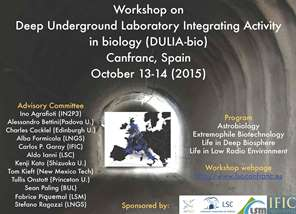Description
Juan M. Gonzalez, Enrique J. Gómez, José A. Romero, Alba Cuecas
Instituto de Recursos Naturales y Agrobiología de Sevilla (IRNAS), Consejo superior de Investigaciones Científicas (CSIC), Avda. Reina Mercedes 10, 41012 Sevilla, Spain
Microorganisms are the creatures living under the most extreme conditions on Earth and the main candidates to inhabit other planets. Our research team studies the microorganisms on a variety of environments with a focus on extreme environments. We attempt to understand the functioning and role of microorganisms and to apply this knowledge into biotechnology. Currently, we are working on different topics.
For instance, we are analyzing the microbial diversity of a hot spring environment showing a temperature gradient of 50ºC. One isolate from this environment belonging to the Phylum Thermotogae, which is able to grow optimally at 80ºC, is being further analyzed through its genome project.
Other aspect being studied is the effect of periodic high temperature events on the microbes from temperate soils. The influence of temperature, pH and water content on thermophilic microbial communities and their enzymatic activity is under study and it is providing with interesting consequences on the actual role of some thermophiles in soils.
Microorganisms in nature could behave differently than in laboratory cultures. The growth and survival of extremophilic microorganisms is being analyzed under a variety of conditions to understand how microbial life is preserved in variable environments. Other investigations involve acidophilic communities, hyperthermophiles, anaerobic reactors, comparative studies of protein structure from thermophilic and mesophilic enzymes and analyses of various microorganisms growing under unique conditions.
The Spanish Network on Extremophiles involves most of Spanish researchers working on the study of extremophiles. Most aspects of research on extremophiles are covered within this network. These topics include halophiles, acidophiles, thermophiles, xerophiles, psychrophiles, and these researcher teams offer broad expertise on different techniques and disciplines such as microbiology, physiology, biochemistry, genomics, taxonomy, molecular biology, biotechnology, among others. Meetings are organized periodically (generally on an annual basis) to share our last findings and to propose new research collaborations.




